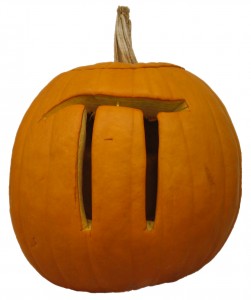 Renal function, a destructive disease in cattle, and an infection that can damage a growing human fetus are among the topics to be studied beginning in 2011 at NIMBioS. The range of topics to be investigated in new Working Groups and Investigative Workshops advance the Institute’s mission to foster new collaborative efforts to address biological questions using mathematical and computational methods. Researchers across multiple disciplines will comprise the newly formed Working Groups and Investigative Workshops. Investigative Workshops last from several days to one week and involve 30-40 participants, of which about half are invited, while Working Groups comprise about a dozen scientists who meet up to four times over the course of several years.
Renal function, a destructive disease in cattle, and an infection that can damage a growing human fetus are among the topics to be studied beginning in 2011 at NIMBioS. The range of topics to be investigated in new Working Groups and Investigative Workshops advance the Institute’s mission to foster new collaborative efforts to address biological questions using mathematical and computational methods. Researchers across multiple disciplines will comprise the newly formed Working Groups and Investigative Workshops. Investigative Workshops last from several days to one week and involve 30-40 participants, of which about half are invited, while Working Groups comprise about a dozen scientists who meet up to four times over the course of several years.
New Working Groups include the following:
- Modeling Renal Hemodynamics (Organizers: Anita Layton, Dept. of Mathematics, Duke Univ. and Leon Moore, Dept. of Physiology & Biophysics, SUNY Health Sciences Center)
- Modeling Johne’s Disease (Organizers: Shigetoshi Eda, Center for Wildlife Health, Univ. of Tennessee; Ynte H. Schukken, Dept. of Population Medicine and Diagnostic Sciences, Cornell Univ.; Ian A. Gardner, Dept. of Medicine and Epidemiology, UC Davis; John P. Bannantine, Agricultural Research Service, USDA)
- Multiscale Modeling of the Life Cycle of Toxoplasma Gondii (Organizers: Zhilian Feng, Dept. of Mathematics, Purdue Univ.; Dana Mordue, Dept. of Microbiology and Immunology, New York Medical College; Chunlei Su, Dept. of Microbiology, Univ. of Tennessee; Xiaopeng Zhao, Dept. of Biomedical Engineering, Univ. of Tennessee)
The following Investigative Workshops will be held during 2011:
- ‘Pretty Darn Good Control’: Extensions of Optimal Control for Ecological Systems (Organizers: Megan Donahue, Hawaii Institute of Marine Biology; Carl Toews, Dept. of Mathematics, Duquesne Univ.; Alan Hastings, Dept. of Environmental Science and Policy, UC Davis; Paul Armsworth, Dept. of Ecology and Evolutionary Biology, Univ. of Tennessee)
- Optimal Control for Agent-Based Models (Organizers: Gary An, Univ. of Chicago Pritzker School of Medicine; Reinhard Laubenbacher, Virginia Bioinformatics Institute; Jie Xiong, Univ. of Tennessee)
